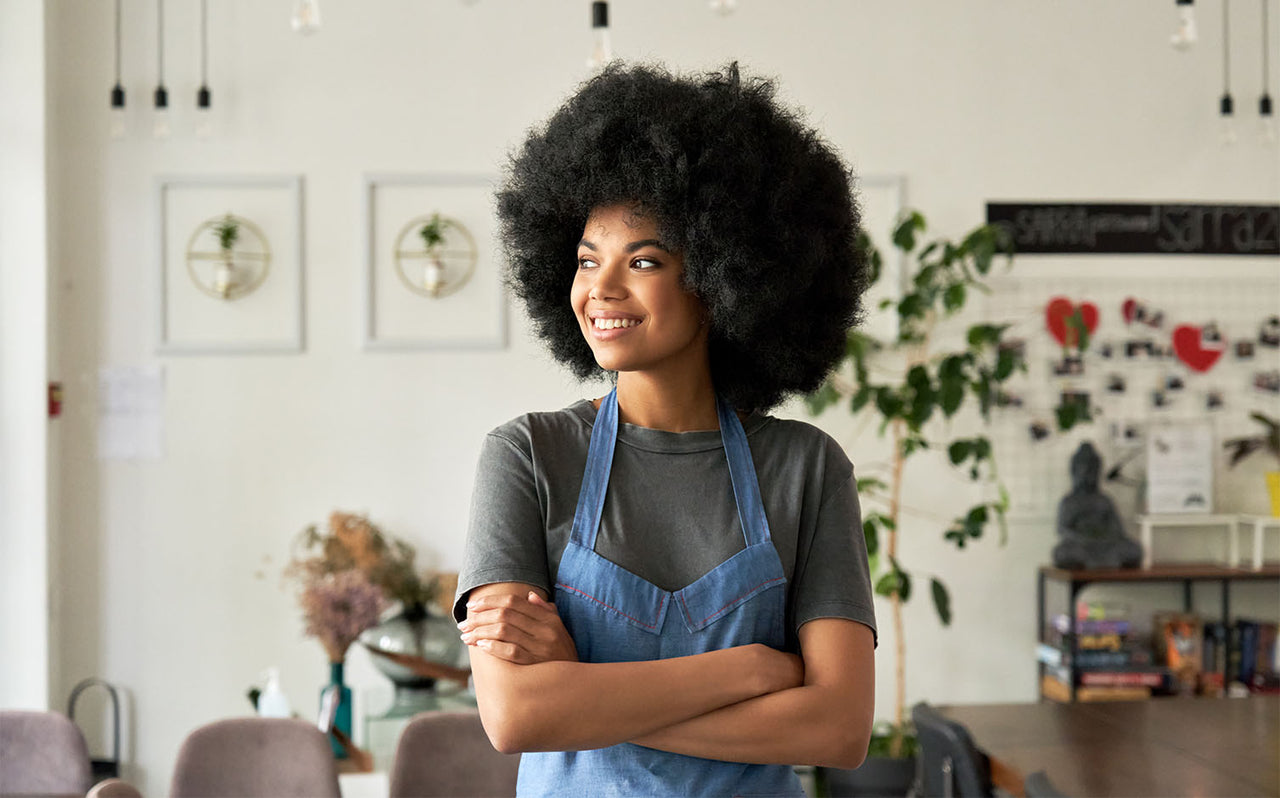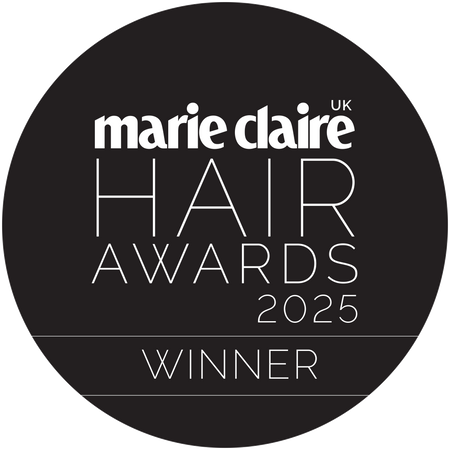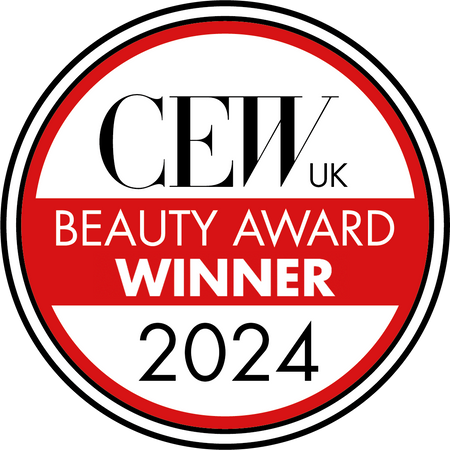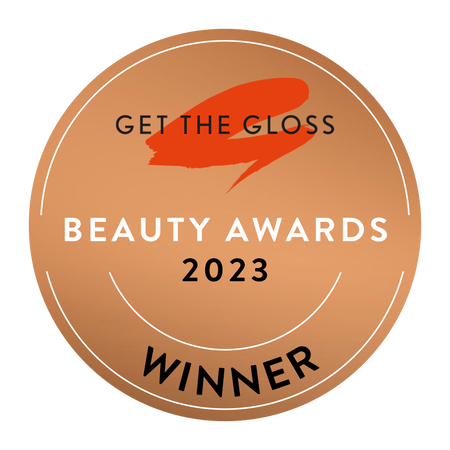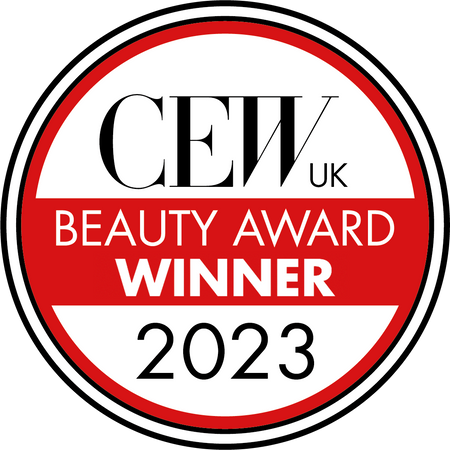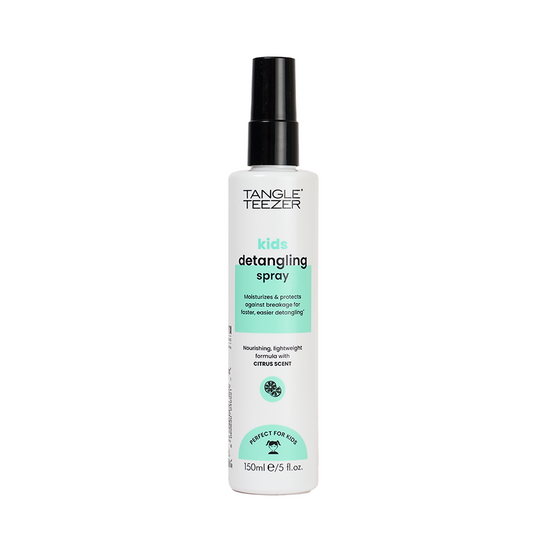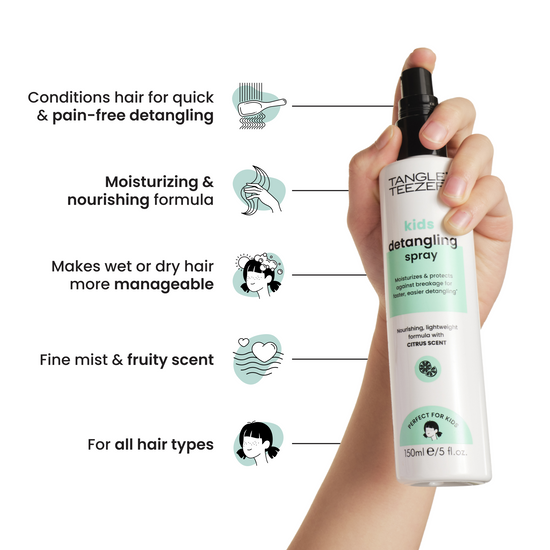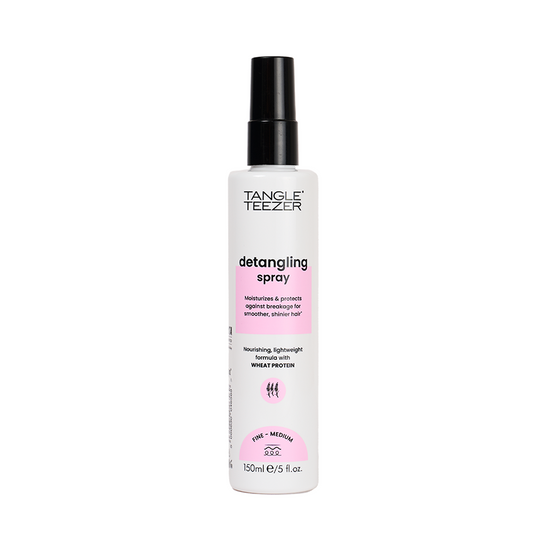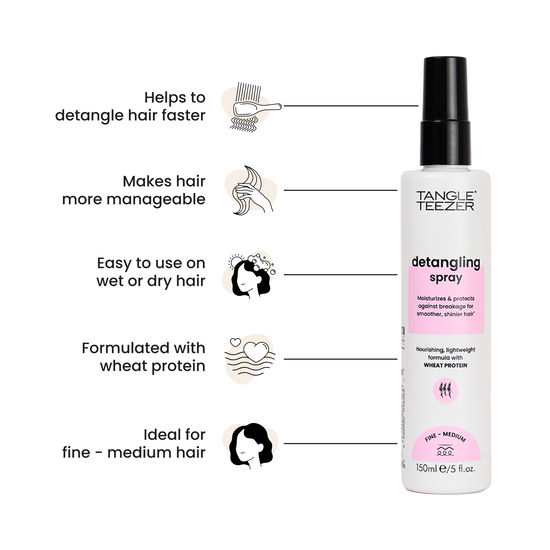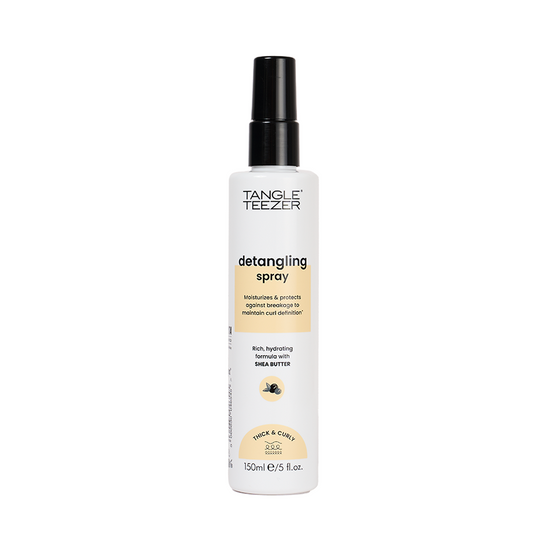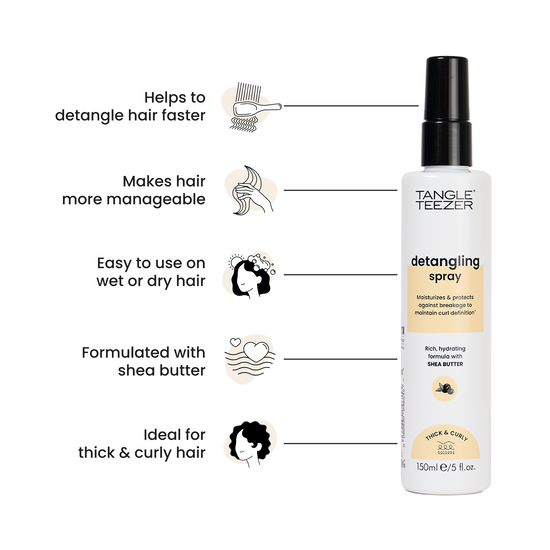Afro-textured hair is not only naturally beautiful - it is also steeped in black history and culture. Unfortunately, racism and discrimination find their way into all areas of society - including our hair. Afro-textured hair discrimination is prevalent - from workplaces and schools to hair salons and the media - and it is still damaging the confidence, opportunities and feelings of black people all over the world.
But, there are organizations fighting to not only improve the representation of afro hair but to protect the rights of people who want to embrace their culture and go natural at work or home. We’re taking a deep dive into the reality of Afro-textured hair discrimination and shining a light on the incredible people who are working to end it once and for all.
The beauty in black hairstyles
Let’s just take a minute to celebrate how incredible afro hair is. Thick or fine, curly or coily, unique and naturally stunning, we love to see people rocking their curls and coils with pride.
But embracing your natural hair isn’t only a style statement, it’s often a political one. The Civil Rights movement of the 1960s sparked a change in the way black people - who had long been told that Afro-textured hair was undesirable - viewed their hair. The afro became the go-to look of the Black Panthers and a powerful symbol of rebellion against white oppression.
It’s not only afros that carry a lot of cultural weight. Braids are the perfect protective style, but they are also a social art with a lot of important history. You can trace braiding within African culture back around 5000 years when your braids could represent everything from marital status to the tribe you belonged to. Locs are another black hairstyle that is an emblem of culture- and for Rastafarians, they are also deeply connected to their spirituality.
These are just a few examples of how black hairstyles are intrinsically linked to identity and culture - which is why it’s so important that they are protected from discrimination. “The connection between Afro-textured hair and black culture is so strong because it’s rooted in who we are, in our most natural state of being this is how our hair grows.” explains Rebecca Masinja, Co-Founder and Director of 4Curly Hair and Contributing Writer for Black Ballad. “There’s nothing more powerful than owning who you are intrinsically, and natural hair is a part of that.” Whether it’s about embracing the gorgeous natural hair you were born with or wearing it in a style that honors your heritage, everyone should be free to express themselves without fear of oppression.
What is hair discrimination?
Before we get to the hair heroes that are pushing for change, let’s first dissect exactly what hair discrimination is - and why it disproportionately impacts black people.
Discrimination is essentially being treated differently - usually negatively - based on certain characteristics, be it your race, your gender or your sexuality. Natural hair discrimination is a form of racism - and often manifests in micro-aggressions that can be incredibly harmful. However, the impact of hair discrimination can also be far-reaching and long-lasting, impacting both the professional progress and self-confidence of black people. But where did it all start and how is it showing up in society today?
The ‘Good Hair’ Narrative
The origins of natural hair discrimination can be traced back to the slave trade. Until this point, European beauty standards had not been imposed on people with afro-textured hair. However, when colonization began, influential white people started to refer to black people’s hair as ‘wool’ and the concept of good (European, smooth, straight) and bad (textured, curly, coiled) hair was introduced to the world stage.
This idea not only created division between white and black people - but also encouraged discrimination within the black community - known as colorism. “Colourism is a tool that has been used on the black community since colonization to create a division.” says Rebecca. “Colorism in the natural hair community often rears its head through references of “good hair” and the trope that men and women with lighter skin complexions have “good hair”. Unfortunately, this has led to some women of darker complexions with tighter coiled (e.g., 4C) hair feeling less-than or that their hair type is undesirable.” This narrative continued long after slavery was abolished and we are still feeling the repercussions of this discrimination today - in the form of both racism and colorism.
Workplace Discrimination
Modern-day hair discrimination comes to light very clearly when we look at the workplace. The racist concept of ‘good vs bad hair’ may create stereotypes about attractiveness but it also perpetuates a narrative that links black hair to being low-status, uneducated and unprofessional - all of which are completely untrue.
Despite the origins of this idea being centuries old, it is sadly something that still impacts people today - no matter how influential you are. In 2019, rumors swirled that former America’s Got Talent judge Gabrielle Union was told by producers that her hair was ‘too black’. Swiftly after the incident came to light, Union was reportedly fired from her role on the show for speaking out against the discrimination.
But Gabrielle is certainly not alone in being made to feel uncomfortable in the workplace due to her hair type. Research by Dove shows that 37% of Black adults have experienced work-based discrimination due to their hair and 25% have been sent home from work for wearing their hair naturally. The survey also revealed that a staggering 80% of black women felt the need to adapt their natural hair to fit in in the office.
Even more heartbreaking, is that this type of hair discrimination isn’t only impacting adults. The same survey revealed that 51% of children with Afro-textured hair have been sent home from school for reasons connected to their hair.
Salons
There are many incredible hair stylists that specialize in caring for Afro-textured hair. However, many people with this hair type report feeling discriminated against when it comes to salons who don’t know how to care for their hair type. This is a problem that’s felt from the high street to the catwalk. In 2019 model Olivia Anakwe called out hair stylists that ignored her backstage at Paris Fashion Week, because they wouldn’t admit they didn’t know how to do the cornrows that had been planned for her look. “If I am asked to wear my natural hair to a show, the team should prepare the style just as they practice the look and demo for non-afro hair.” she wrote in an Instagram post just after the incident.
Until this year, it was possible for hairdressers to become fully qualified, without having to learn how to style afro and textured hair. In 2021 The National Occupational Standards for hairdressing (NOS) was updated to include legislation that means all UK hairdressers are now required to learn about afro hair - but, shockingly, it has taken until now for this hair type to be considered important enough to be included in the curriculum.
This knowledge gap not only highlights the ongoing discrimination against Afro-textured hair, but it also promotes division. Black women should be able to go to any salon they want and get the hairstyle they desire - not forced to go to a specialist because their hair type is seen as different to the norm - this is not equality, it’s discrimination. It could also be a case that this attempt at integration is just too little too late - will the black community want to spend their time and money on a predominately white industry that has left them feeling underserved and ostracized for so long? Only time will tell, but it’s going to take a while to repair the damage done by the long-held divisive narrative that Afro-textured hair sits outside the ‘norm’ of hair care.
Representation
Narrow beauty ideals are both perpetuated and reflected by what we see in the media and we all know that it’s hard to be what you can’t see. Even if we address attitudes in the workplace, or improve access to hair care, it is still hard for young black women to feel confident if the world is telling them that textured hair = unattractive or against the norm. “Growing up it’s important to be able to see yourself reflected in the world around you, it helps build confidence, gives young people a sense of belonging.” explains Rebecca. “When we aren’t represented it can lead to young black people feeling like they don’t have a place in the world they live in, feeling unworthy to take up spaces and also potentially feeling resentful or insecure about how they look.”
For Rebecca, representation in celebrity culture was key to her growing to embrace and love her textured hair and braids. “Representation gives young people the confidence to be unapologetically themselves and to wear their hair in whatever natural state it’s in.” she reflects. “Growing up I always looked to the singer Brandy – she was a beautiful black young woman who always wore braids! For myself and many young black women we spent most of our school days in braids or some sort of protective style, so seeing her gave me the confidence to rock my braids in school without feeling any shame.”
Whilst we now see more celebrities and people of influence sporting styles like braids and afros - it’s undeniable that Afro-textured hair still struggles to get the representation it deserves. Many black models are discriminated against for wearing black hairstyles and are encouraged to straighten their hair to secure big campaigns. In 2018, Gabriella Bernard was forced to relax her hair as part of the makeover segment on the Caribbean's Next Top Model despite a passionate speech about how her natural hair formed a big part of her identity. She has since turned the experience into a short film entitled ‘Black Hair’.
But things are changing - slowly. We’re seeing more and more black women in the spotlight shunning European beauty standards and embracing their beautiful natural style. Stars like Beyonce and Zendaya have kissed goodbye to their weaves and wigs and have instead been rocking traditionally black styles on the red carpet over the last few years - encouraging other women to do the same.
Ending Hair Discrimination
Afro-textured hair discrimination is a complex and multi-layered issue - and there is no one single way to solve it. Everyone deserves to be able to access haircare that works for them and wear their identity with pride, without fear that it could impact their chances in life. The only way to make this a reality is to unpick the various areas of discrimination and improve education, protection and representation across the board. Here are three hair heroes that are doing just that.
World Afro Day
What is World Afro Day?
World Afro Day (WAD) is an opportunity to celebrate the beauty of Afro-textured hair and the rich culture that comes with it. Marked each year on the 15th of September.
The organization, founded by Michelle De Leon is dedicated to educating people about the history of Afro-hair and breaking down damaging stereotypes. Michelle was inspired to set WAD up when she heard her daughter singing about her natural hair. She knew then that she wanted every child with afro hair to feel the same sense of pride and joy. The organization’s work is far-reaching from educating teachers about afro hair discrimination to hosting events and awards that celebrate black excellence.
Who does World Afro Day Represent?
The organisation is here to help everyone with Afro-textured hair find pride in their identity. However, there is a particular focus on supporting children with Afro-textured hair and education is a cornerstone of the organization’s work.
This year they are marking their 5th anniversary with the ‘Big Hair Assembly’ and educational event, involving people from all backgrounds coming together to celebrate Afro-hair identity and equality. Whilst its origins lie in the UK, its events are streamed internationally and they work with ambassadors all over the world to ensure children everywhere can get involved and feel connected.
CROWN Act Day
What is CROWN Act Day?
CROWN stands for ‘Creating a Respectful and Open World for Natural Hair’ and the CROWN Act is a law that makes hair based discrimination illegal in the US.
CROWN Act Day - celebrated on the 3rd of July - marks the day the first CROWN Act was signed, with California being the first state to enshrine the act in law in 2019. Since then, States including New York, Washington, Colorado, Maryland and Virginia have followed in California’s footsteps - but there is still a long way to go! CROWN Act Day is an opportunity to not only highlight the issue of afro hair discrimination but to put pressure on the rest of America to sign the act. You can join their mission by signing their petition right here.
Who does CROWN Act Day Represent?
The CROWN Act and CROWN Act Day are spearheaded by The CROWN Coalition, founded by US organizations Dove, Color of Change, National Urban League and Western Center on Law & Poverty. Whilst the act itself is primarily focused on changing laws in the United States, CROWN Act Day is celebrated on an international level. Virtual events allow people from all over the world to come together to celebrate the beauty of their natural hair.
Over in the UK, members of the CROWN Coalition are also doing great work. Last year, Dove created a CROWN Fund of £170,000. This money will support the Black community in the UK by supplying grants to Black-led organizations and projects working to empower the next generation of black women and girls!
The Halo Code
What is The Halo Code?
The Halo Code was created by 30 young black activists in the UK who recognized that - whilst Race-Based Hair discrimination has technically been illegal in the UK since 2010 - it was still happening every day in workplaces and schools. The Halo Code is a pledge that organizations and educational establishments can sign to promise they are taking steps to address the issue of Afro-textured hair discrimination. It also gives black people the confidence that when joining a new organization or school, they won’t have to choose between embracing their culture and advancing in their career or education.
Who does the Halo Code Represent?
The Halo Code is currently primarily focused on organizations and schools based in the UK. However, they are partnered with the CROWN Coalition in the States to ensure an international effort to end Afro-textured hair discrimination. The code protects the rights of anyone who has Afro-textured hair, regardless of their heritage and is dedicated to having a widespread impact within the United Kingdom from schools, to small businesses to internationally recognizable brands. Some of the organizations already signed up for the pledge include Marks and Spencers, Avon and us! Tangle Teezer are proud to be pledges of the Halo Code - and you can join too, right here.
